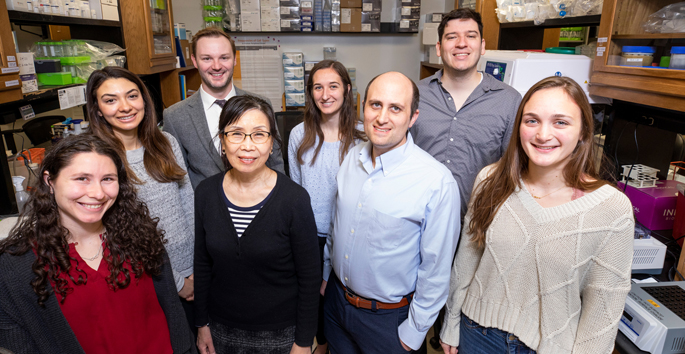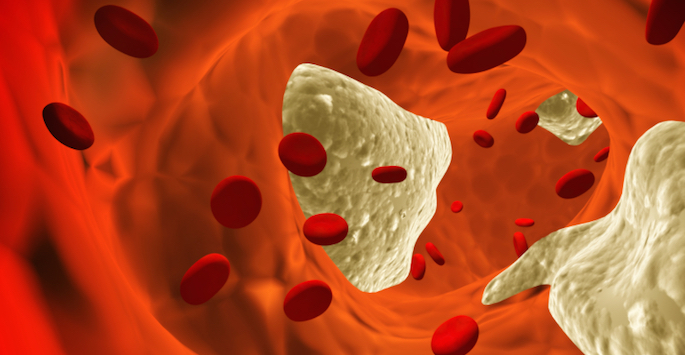Cardiovascular Disease
-

Researchers clarify role of blood cell mutations in disease
Vanderbilt researchers have developed a new method to analyze mutations in blood stem cells that can trigger explosive, clonal expansions of abnormal cells. Read MoreFeb 2, 2023
-

Reduced kidney function may cause cardiovascular disease: study
An international team of investigators has found that mild to moderate reduction in kidney function may cause cardiovascular disease, even in people without symptoms of heart disease or diabetes. Read MoreDec 15, 2022
-

“Supermeres” may carry clues to cancer, Alzheimer’s disease and COVID-19
Vanderbilt researchers have discovered a nanoparticle released from cells, called a “supermere,” which contains enzymes, proteins and RNA associated with multiple cancers, cardiovascular disease, Alzheimer’s disease and even COVID-19. Read MoreDec 10, 2021
-

Potential protection from atherosclerosis
Vanderbilt researchers have discovered a potential way to reduce atherosclerosis: blocking the modification of an HDL-associated enzyme by reactive molecules called isolevuglandins. Read MoreAug 19, 2021
-

Vitamin D impact on disease biomarkers
In a randomized controlled trial, vitamin D supplementation did not improve biomarkers for cardiovascular and metabolic disease. Read MoreAug 10, 2021
-

Probing statin-associated diseases with genetics
Vanderbilt researchers used genetics tools and biobanks with linked electronic health records to explore the associations between statins and noncardiovascular diseases. Read MoreJul 12, 2021
-

Salt, immune cells and hypertension
Excess dietary salt activates immune cells to induce inflammation and hypertension, supporting current recommendations for low sodium consumption. Read MoreAug 20, 2020
-

Soy food, metabolism and the microbiome
Consumption of soy foods may shape the microbiome and protect against hypertension only in individuals with soy-responsive microbiota, Vanderbilt researchers have discovered. Read MoreJul 27, 2020
-

Acute kidney injury recovery time impacts future risk
Interventions that impact the timing of recovery following acute injury may improve future outcomes for patients. Read MoreOct 31, 2019
-

AI maps routes to heart disease
Machine learning on unlabeled electronic health record data has shed light on the emergence of cardiovascular disease. Read MoreOct 7, 2019
-

Roden’s circulatory diseases research honored
Vanderbilt University’s Dan Roden, MD, internationally known for his contributions to understanding how genetic variation affects drug response, has been named a recipient of the 2018 Louis and Artur Lucian Award for Research in Circulatory Diseases by McGill University in Montreal, Canada. Read MoreJun 21, 2018
-

Understanding HDL structure
Structural features of newly formed HDL particles will help guide understanding of “good cholesterol” and its function. Read MoreMay 3, 2018
-

Study finds menthol cigarettes do not further increase smokers’ cardiovascular disease, stroke risk
Smoking is deleterious to health, but smokers who prefer menthol cigarettes to nonmenthol can breathe a sigh of relief…for now. Read MoreMay 17, 2016
-

Depression poses heart risk for HIV patients: study
The first study to suggest that major depressive disorder (MDD) is an independent risk factor for heart failure in HIV-positive adults has been published in Circulation. Read MoreOct 8, 2015